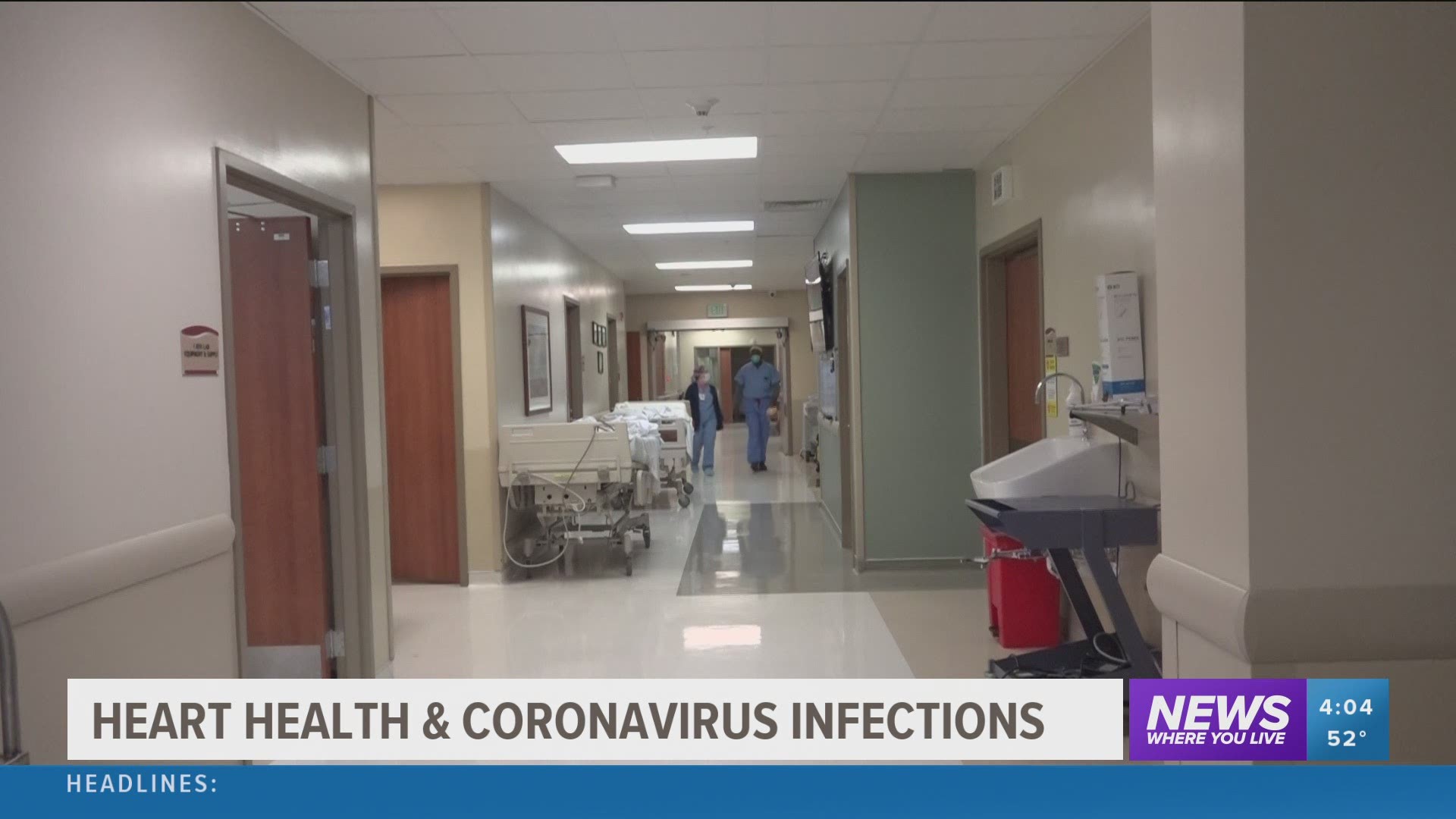FORT SMITH, Ark. — It’s National Heart Health Month and it comes at a time when we might be thinking about heart health more than usual due to the coronavirus pandemic.
Whether you have a history of heart problems or not, cardiologists at Baptist Health say they are seeing complications in COVID-19 survivors.
“We are seeing more new people who have had COVID and thinking we probably would not be seeing them if it wasn’t during COVID,” said Dr. Nasser Adjei at Baptist Health
Dr. Adjei says most COVID-19 survivors come in with common complaints.
“People complain about palpitations meaning more awareness of heart beating fast or irregular and of course the shortness of the breath,” Dr. Adjei said.
Along with those complications, Dr. Adjei says it can get much more serious in new patients and previous heart patients. They’ve seen after-effects as serious as mini heart attacks and heart failure.
Doctors say it’s important to look out for signs of complications.
“If you think your exercise capacity is a lot lower than it should be that is a sign that something is not right,” Dr. Adjei said.
A sign that Chrissy Fitzgerald, who had a heart history and is a COVID-19 survivor, didn’t take lightly.
“I didn’t work out for a couple of weeks because I was too nervous, I saw three different doctors,” Fitzgerald said.
Thankfully, other than her blood pressure being a little high, Fitzgerald's tests came back normal, giving her at least some peace of mind.
“I don’t worry about it too much because once you see three doctors and they say you that you’re fine you just assume you are even though I know I’m not where I was before I had COVID physically,” she said.
As the pandemic continues, Fitzgerald says it’s important to remember no matter if and when you had it, it affects everyone and their heart differently.
“You don’t know how much damage it may have caused to your heart,” she said.
Whether you have obvious complications or not after surviving COVID-19, Dr. Adgai says it’s important to get a check-up with a doctor because it could just save your heart’s life.
Dr. Adjei says he recommends seeing your primary care doctor first and if needed, they’ll give you a recommendation for a specialist.

